This is African American History Month, so in recognition of some of the diverse narratives in gaming, we present this list of complex black characters that have graced our television screens and PC monitors. After lengthy discussions on the topic, we decided to highlight characters that are played by and modeled after black talent. In this way, we hope to recognize the staff members who work behind the scenes in conjunction with the characters presented here.
Games motivate. More importantly, they have the power to mirror an ever-changing fanbase. Here are ten black characters that have inspired us.
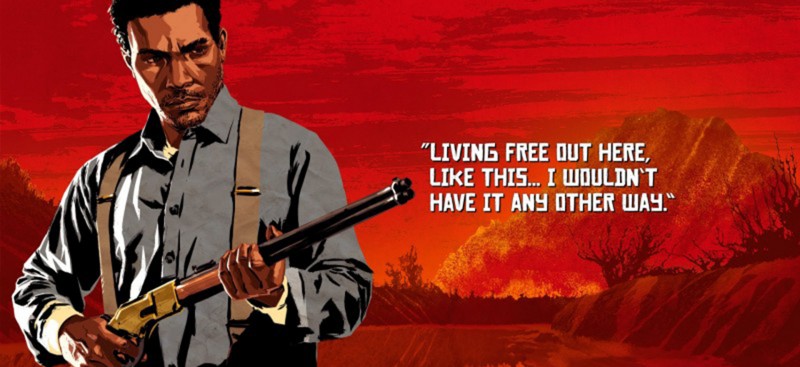
Leonard “Lenny” Summers – Red Dead Redemption II
Who he is: One of the youngest members of the Van der Linde gang, Lenny was born to former slaves in 1880. His father and uncle were both educated men who taught him to read and write. When Lenny’s father was killed by two drunken men, he guns them down in a fit of rage. After three years of constantly running from the law, he joins the Van der Linde gang and earns the trust of his companions.
Why we love him: Red Dead Redemption II‘s Lenny is compelling because he is a vocal reminder of the heightened racial tensions that plagued the wild frontier. In camp, he provides first-hand accounts of violence against his family and even sexual violence against female slaves. The “Preaching Forgiveness As He Went” mission is particularly striking, as Lenny educates Arthur about the experiences of being black in a hateful America; “…but most of [racism is] a glance, or a word, and after that, a visit in the night.”
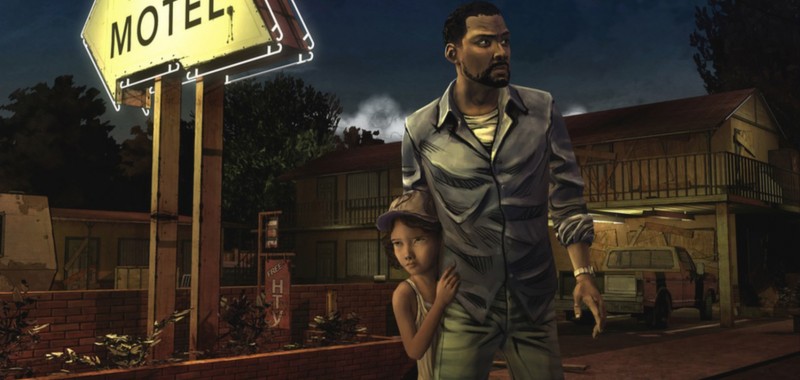
Lee Everett – Telltale’s The Walking Dead
Who he is: A former history professor at the University of Georgia, Lee loses everything in a single moment of violence when he discovers his wife’s affair. He begins his apocalyptic journey, downcast, in the backseat of a cop car – not an ideal start for a black character in modern-day America. After multiple incidents involving the undead, he discovers his saving grace: Clementine. Through their strong bond, he finds absolution.
Why we love him: While Lee comes across racism in his fight for survival, his self-agency is never limited by it. Despite his wife’s betrayal before the zombie virus, he learns to trust others again and becomes a significant role model for Clementine and his other companions. By the end of the game’s first season, Lee has transformed into a leader worth following.
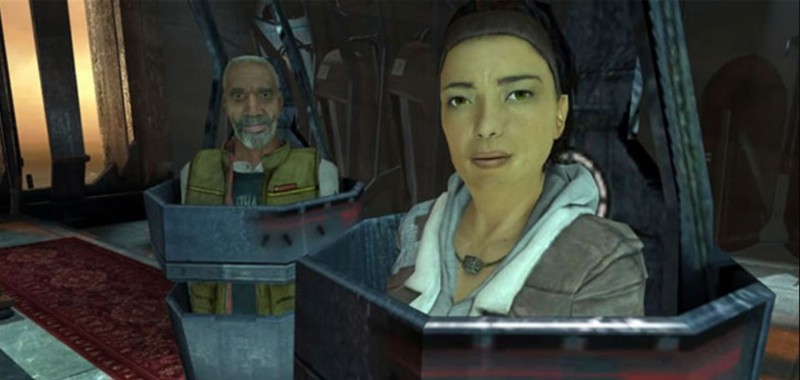
Alyx Vance – Half-Life 2
Who she is: It didn’t take long for The Combine to assert their interdimensional dominance over human society. Alyx and her father, Eli, escape the ensuing struggle, but they do not flee unscathed. Eventually, the two find respite in a nearby wasteland. Many years pass, and Alyx joins the Resistance to retake the planet.
Why we love her: Regardless of her supporting role, Alyx becomes a key figure in the war effort against The Combine and assists leading-man Gordon Freeman as he explores the regions of Black Mesa. Proficient at hacking and combat, she is free from the restrictions of the “damsel-in-distress” or “scantily clad-warrior” tropes. Thanks to realistic mannerisms and a multi-layered personality (for instance, Alyx often hides her fears behind a facade of confidence), she reacts and functions like a real person. Ultimately, she is a shining example of black femininity.
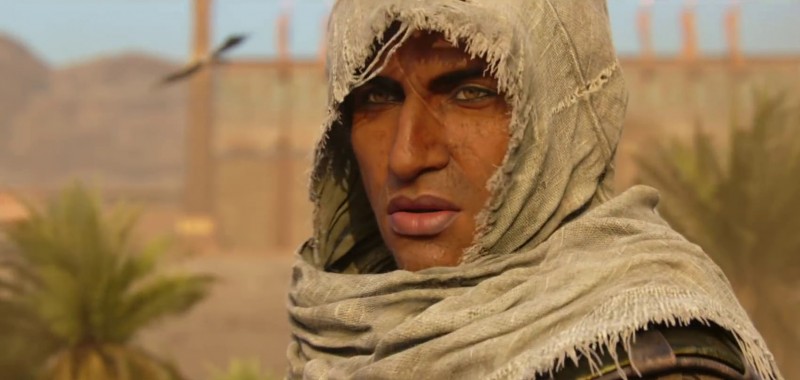
Bayek of Siwa – Assassin’s Creed Origins
Who he is: Bayek is a Medjay (law enforcer) of Egypt, like his father before him. When the Order of the Ancients (a pre-Templar faction) murder his son, he sets out on a quest of vengeance. He soon becomes embroiled in the macro-political struggles of the greater Mediterranean landscape.
Why we love him: Leading up to Assassin’s Creed Origins’ release, Ubisoft received backlash because of their choice to portray ancient Egypt through a black lens. While scholarly debates about the complexion and exact ethnicity of Africa’s early civilizations have thrived for considerable spans of time, Bayek’s blackness (and the inherent blackness of Origins’ world) is important. Moreover, as founder of the Brotherhood, he is single-handedly responsible for the franchise’s extensive lore. What we appreciate about Bayek is his paternal nature when around children. Although this reaction is rooted in heartbreak, Bayek’s internal complexities make his retribution far more significant.
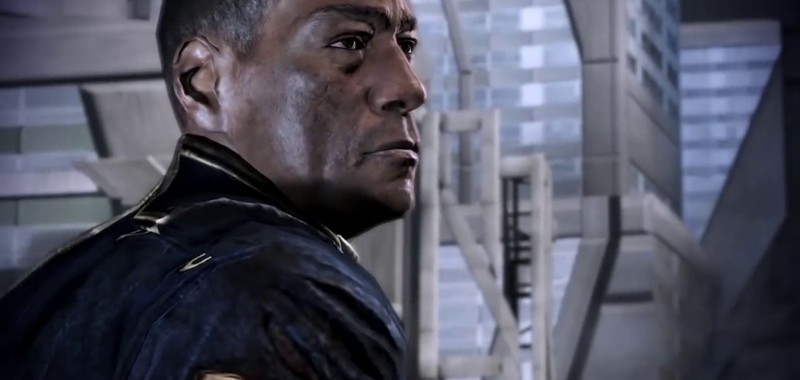
Captain David Edward Anderson – Mass Effect
Who he is: One of the Alliance’s most well-respected soldiers, Captain Anderson is a veteran of The First Contact War: a series of battles that occurred after humanity’s first contact with extraterrestrial life. Despite his personal hardships and betrayal at the hands of Mass Effect’s antagonist Saren, he remains Shepard’s most loyal supporter. With his constant guidance and active assistance, you handily defeat the universe’s most daring threat.
Why we love him: Anderson’s myriad decorations and commendations include captaining the iconic Normandy cruiser, graduating from the legendary N7 branch of the Alliance, and being instated as the first human Council member. These various occupational successes are nothing short of exemplary. Human ethnicity is not explored in Mass Effect, although it does deal with xenophobia (*ahem* Ashley). Nevertheless, Anderson has been included here because of the high, prestigious standards he sets for the soldiers around him, including Shepard.
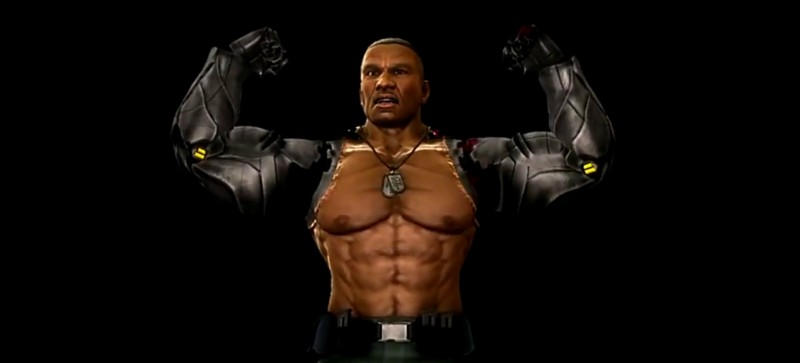
Major Jackson “Jax” Briggs – Mortal Kombat
Who he is: The military leader of the Outer World Investigation Agency (O.I.C.) has been a staple in the Mortal Kombat series since its second entry in 1993. Equipped with his iconic stainless-steel arms, he was originally introduced to the series during his siege against Kano’s Black Dragon crime syndicate. In other games, he ventures to the Outworld in search of his close friend Sonya Blade. In modern iterations, he has started a family with his wife, Vera.
Why we love him: Aesthetically, Jax suffers from a stereotypical “big, angry black man” musculature. This abnormal physique is evocative of early and modern visualizations of video game blackness, such as Barret Wallace and Albert King. Jax’s inclusion on this list, however, is connected solely to his characterization. While most black fighters (like Balrog and Bruce Irvin) are shackled by their shady pasts and antagonistic tendencies, Jax stands atop the heap as a captivating leader, loyal friend, and protective father.
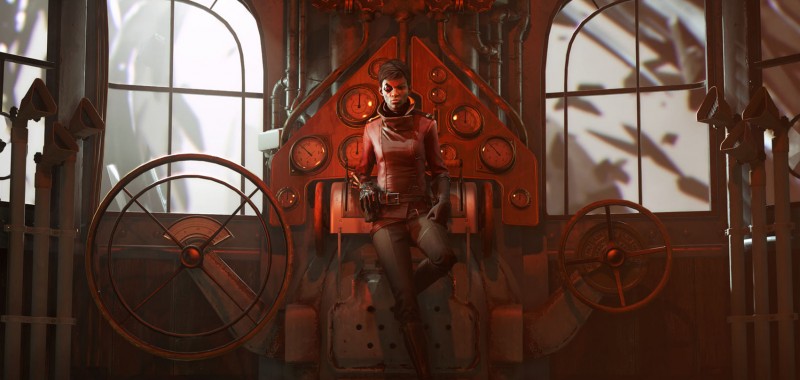
Billie Lurk – Dishonored 2 & Death of the Outsider
Who she is: Lurk’s existence is mired in tragedy. Born to abuse and impoverishment, her first haven was her lover Deirdre. After aggravating two unfeeling noblemen, Deirdre is struck and killed. Watching the murder elapse, Billie sheds blood and becomes a wanted fugitive. In time, she learns to discover purpose in the death of others.
Why we love her: Billie’s dual identity of being black and queer is important. While these aspects to her character aren’t deeply explored, both combine to form a graceful representation that otherwise wouldn’t have existed in Death of the Outsider. Following in the footsteps of Arkane Studios’ Emily Kaldwin, Billie’s ferocity and self-sufficiency establish her as an unconventionally rigid protagonist. She is a hardened veteran-assassin worthy of standing alongside gaming’s most hardcore leads.
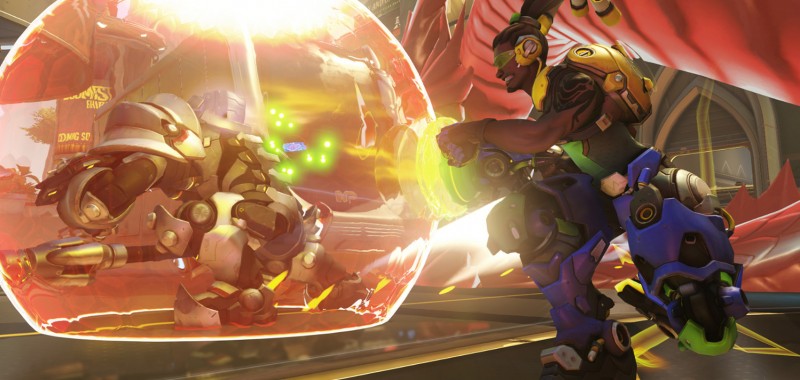
Lúcio Correia dos Santos – Overwatch
Who he is: Born into poverty amid the crammed favelas of Rio de Janeiro, Lúcio fell in love with sports and music. The latter of the two became an obsession and the basis for a successful career. When the notorious Vishkar Corporation aims to redevelop Rio de Janeiro, they declare sovereignty over the Brazilian people. Lúcio thwarts their plans and leads an uprising against the scheming megacorporation.
Why we love him: Lucio’s influential songs, heard worldwide, advocate for justice. After the revolution, he becomes the national symbol of Brazil and continues to inspire social change through music. We love Overwatch‘s Lúcio because he has a personal connection to the disenfranchised; these same people are the demographic for whom he creates music. More importantly, he is a black character in a position of power that consistently gives back to his community.
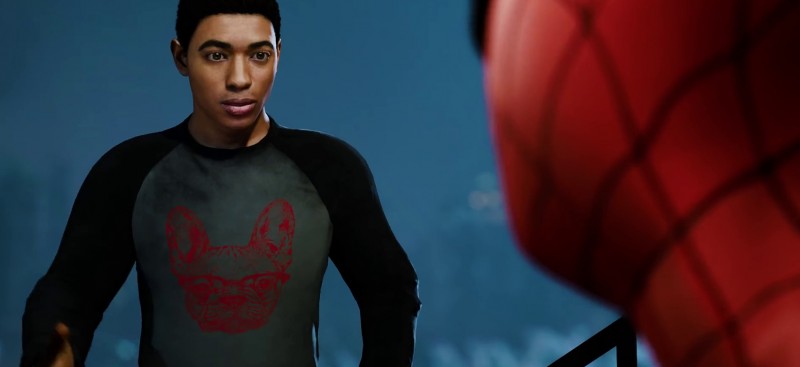
Miles Gonzalo Morales – Spider-Man (2018)
Who he is: An undying fan of Spider-man, Miles’s world comes crashing down after his father is killed in a bombing orchestrated by Mister Negative. At the suggestion of Peter and Aunt May, Miles decides to work at a homeless shelter; that work helps ease his sorrow. When he is bitten by a toxic spider from Oscorp, he develops powers and capabilities similar to Peter’s.
Why we love him: The newest webslinger to don the spidey suit is none other than a charismatic Afro-Latino from Brooklyn! Even though Miles isn’t the main playable character in the latest Spider-Man game, his presence is vital to the story. His deep connection with Peter Parker will likely be a focal point in the future meaning that Miles may be the next POC protagonist that gaming desperately needs.

Lincoln J. Clay – Mafia III
Who he is: Lincoln returns from the Vietnam War to his New Orleans-inspired home of New Bordeaux. The Robinsons, his foster family, heads the Black Mob and he decides to take up the family business. Soon thereafter, calamity strikes, and Lincoln is alone in a world hell-bent on seeing him, and those that look like him, subjugated.
Why we love him: Mafia III’s use of prejudice as a storytelling device illuminated the sins of America’s past. These obstacles make Lincoln’s revitalization powerful. Despite being a crime boss antihero (and another victim of the “big, angry black man” trope), his story provides complex discourse on racism and its destructive power. Lincoln Clay earns his place among the other members of this list because he is a historical symbol of racial tensions in the 1960s Jim Crow-era South.
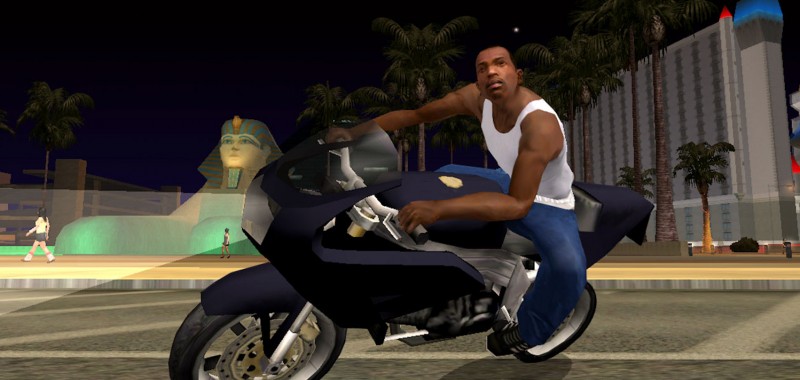
Carl “CJ” Johnson – Grand Theft Auto: San Andreas
Who he is: As the self-made kingpin of the Grove Street Families (loosely based on the Bloods and Crips), CJ triumphs over the socioeconomic systems that oppress him and develops into a hometown hero by the end of his odyssey.
Why we love him: CJ assisted in defining a new era of narratives for a diversifying audience. Despite being a memorable black lead in a blockbuster title, his actions, in combating external pressures, reflect troubling stereotypes: he chooses to embrace the gang violence in his community and benefits from it. We’re grateful for CJ’s contribution to blackness in gaming, but what he symbolizes is an afrocentric archetype that must be renounced.
With more video games contributing to the discussion of contemporary issues, players from myriad backgrounds have the potential to see themselves in the titles they purchase. In this way games become more immersive while also advocating for inclusivity. Positive representations help to shape higher expectations for ourselves and those around us regardless of diverging backgrounds.
For another foray into ethnic portrayals, check this out. And in celebration of sexual diversity, read up on Apex Legend’s roster of LGBTQ characters.
